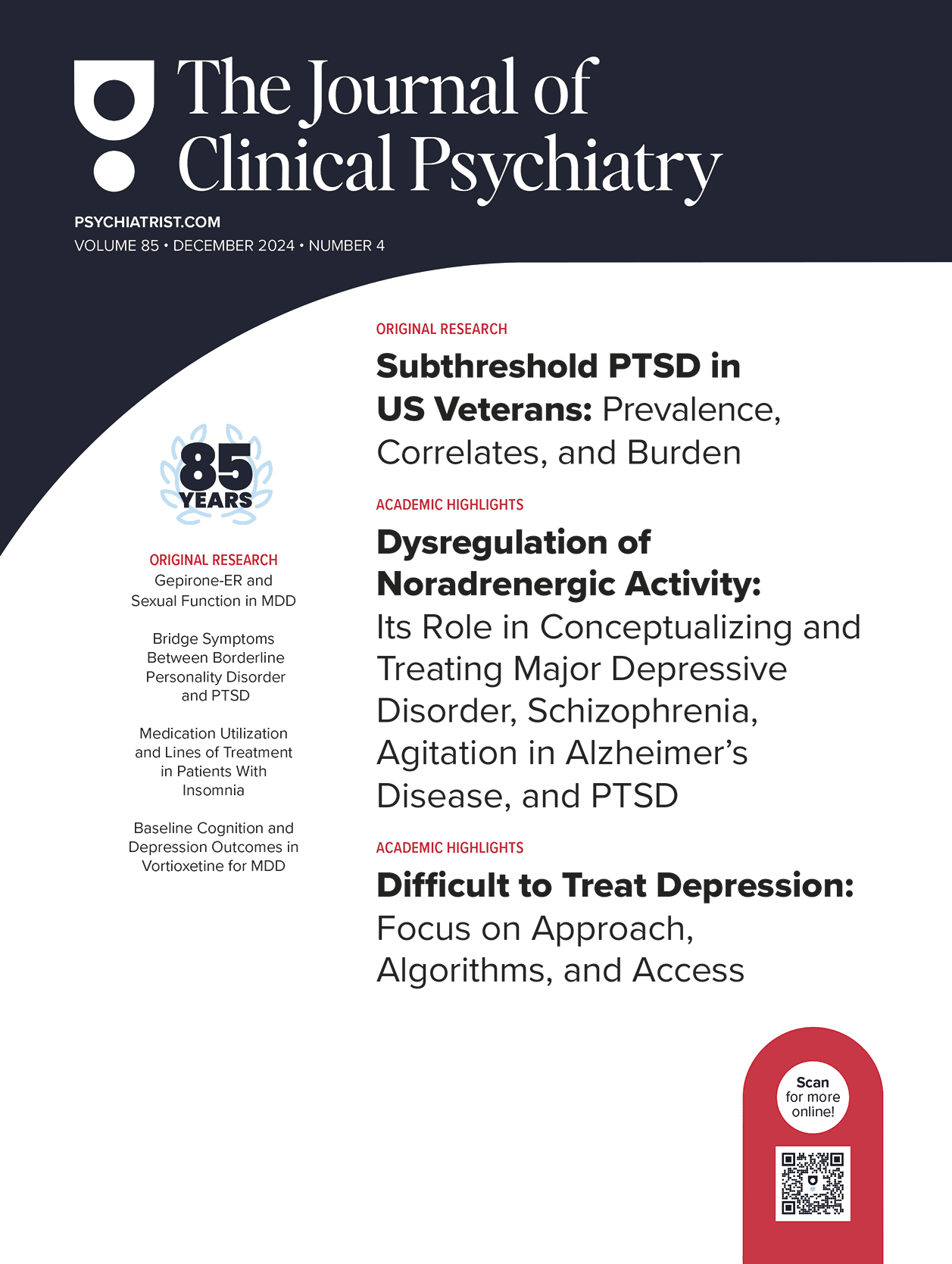Objective: Determine the point prevalence of phenoconversion to cytochrome P450 2D6 (CYP2D6) poor metabolizer status in clinical practice.
Method: This multicenter, open-label, single-visit naturalistic study was conducted from October 2008 to July 2009 in adult patients (≥ 18 years) who had been receiving venlafaxine extended-release (ER) (37.5-225 mg/d) treatment for up to 8 weeks. A 15-mL blood sample was drawn 4 to 12 hours after patients’ last venlafaxine ER dose. Plasma O-desmethylvenlafaxine and venlafaxine concentrations were determined for each patient. CYP2D6 poor metabolizer phenotype was defined as O-desmethylvenlafaxine to venlafaxine ratio < 1 based on published data. CYP2D6 genotype was determined for each patient; patients were classified as poor metabolizer, intermediate metabolizer, extensive metabolizer, and ultrarapid metabolizer. Agreement between poor metabolizer phenotype and genotype classifications was assessed using the McNemar test.
Results: Phenoconversion to CYP2D6 poor metabolizer status occurred in 209 of 865 individuals (24%) with a CYP2D6 non-poor metabolizer genotype. The incidence of CYP2D6 poor metabolizer status based on phenotype was almost 7 times higher than that expected based on genotype: only 4% (35/900) of patients were genotypic CYP2D6 poor metabolizers, but 27% (243/900) were phenotypic CYP2D6 poor metabolizers (McNemar test, P < .0001).
Conclusions: CYP2D6 phenotype conversion is common in patients being treated for depression. These results are important because differences in CYP2D6 drug metabolic capacity, whether genetically determined or due to phenoconversion, can affect clinical outcomes in patients treated with drugs substantially metabolized by CYP2D6. These results demonstrate that personalized medicine based solely on genetics can be misleading and support the need to consider drug-induced variability as well.
Trial Registration: ClinicalTrials identifier: NCT00788944
J Clin Psychiatry
© Copyright 2013 Physicians Postgraduate Press, Inc.
Submitted: March 23, 2012; accepted October 25, 2012.
Online ahead of print: March 13, 2013 (doi:10.4088/JCP.12m07807).
Corresponding author: Sheldon H. Preskorn, MD, Kansas University School of Medicine, 1010 North Kansas, Wichita, KS 67214.
Continue Reading...
Did you know members enjoy unlimited free PDF downloads as part of their subscription? Subscribe today for instant access to this article and our entire library in your preferred format. Alternatively, you can purchase the PDF of this article individually.
Please sign in or purchase this PDF for $40.00.
Save
Cite
Already a member? Login


